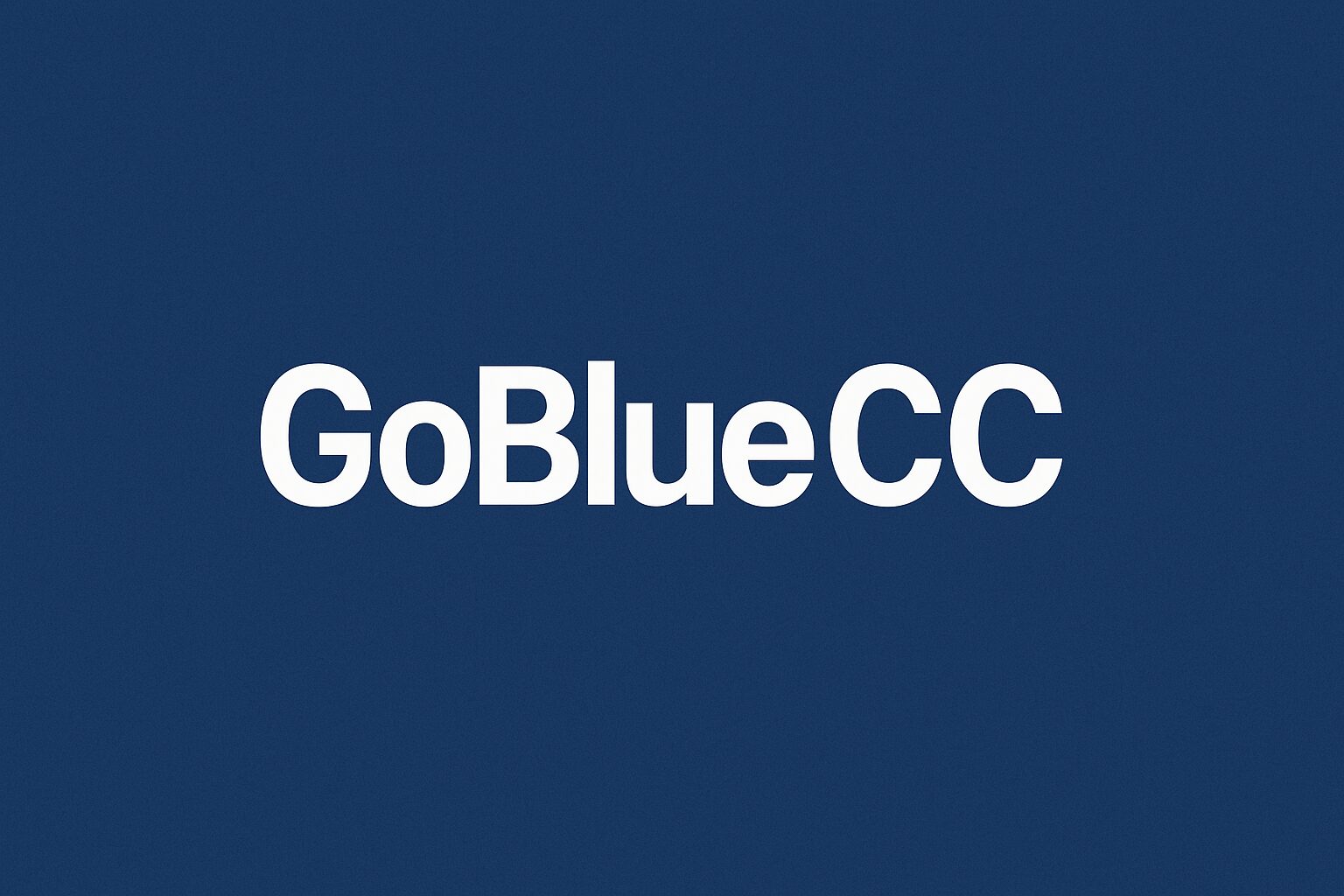GoBlueCC offers a comprehensive guide to help students navigate the complexities of college life. Whether you’re embarking on your college journey for the first time or seeking to improve your current academic experience, GoBlueCC is here to provide the tools and strategies you need to thrive. In this guide, we’ll explore effective tips on setting academic goals, managing time, maintaining health, and building meaningful relationships—all essential elements for achieving success during college and preparing for your future.
Introduction to College Success
College is a pivotal time for personal and academic growth. It’s a place where young adults can broaden their horizons, both intellectually and socially. However, it’s also a period full of challenges, and success depends on the ability to balance multiple aspects of life, from academics and extracurricular activities to social engagements and personal health. GoBlueCC aims to support students in achieving this balance, ensuring that college years are not only productive but also enriching.
Setting Realistic Academic Goals
The foundation of academic success begins with clear, actionable goals. Setting goals gives you direction and motivation throughout your college years. Here’s how to structure your academic goals for success:
Short-Term and Long-Term Goals
Start by setting both short-term and long-term goals. Short-term goals might include earning a particular grade in a course or mastering a specific subject area. Long-term goals, on the other hand, may involve graduating with honors or securing a job in your field of interest post-graduation.
Making Your Goals SMART
To ensure your goals are practical and achievable, apply the SMART criteria:
- Specific: Clearly define what you want to achieve.
- Measurable: Be able to track your progress.
- Achievable: Make sure your goals are within reach.
- Relevant: Align your goals with your long-term objectives.
- Time-bound: Set a timeframe to complete your goals.
Monitoring Your Progress
Regularly check your progress to make sure you’re on track. Celebrate small milestones along the way to stay motivated, and adjust your strategies if necessary. A consistent review of your goals can keep you focused and improve your time management.
Time Management: The Key to Academic Productivity
Effective time management is crucial to success in college. With the multitude of responsibilities that students face—assignments, exams, social engagements—it’s easy to feel overwhelmed. Here’s how you can stay productive and organized:
Prioritize Your Tasks
At the start of each week, identify your most pressing tasks. Rank them by urgency and importance, tackling the highest-priority items first. This will ensure that you don’t waste time on less critical activities when there’s more important work to be done.
Use a Planner or Digital Calendar
A planner or digital calendar is your best friend when it comes to organizing your academic and personal commitments. Use it to track deadlines, meetings, exams, and social events. Setting reminders helps keep everything on track and ensures you never miss an important event or due date.
Break Tasks into Manageable Chunks
Large assignments or projects can seem daunting. Instead of tackling them all at once, break them down into smaller tasks. This makes them feel more achievable and reduces feelings of stress. It also helps you stay focused and motivated by seeing progress as you complete each smaller section.
Developing Effective Study Habits
Study habits are key to academic success. With the right approach, studying can become a more effective and less stressful process.
Create a Consistent Study Routine
Establish a study routine that suits your schedule. Whether you’re an early riser or a night owl, find a time that works best for you and stick to it. Consistency helps train your brain to focus during study sessions.
Use Active Learning Techniques
Instead of passively reading through your textbooks, engage with the material. Active learning techniques, such as summarizing information in your own words, teaching others, or applying concepts to real-world scenarios, will deepen your understanding and retention of the material.
Eliminate Distractions
Find a quiet study space and remove any potential distractions. Turn off your phone or use apps that block distracting websites. Creating a focused environment allows you to concentrate fully and get the most out of your study time.
The Importance of Campus Involvement
College isn’t just about academics—it’s about building relationships, gaining leadership experience, and taking advantage of extracurricular opportunities. Campus involvement has several benefits:
Expand Your Network
Joining clubs, student organizations, or volunteering for events allows you to meet new people and form valuable connections. Networking during college can open doors to internships and career opportunities after graduation.
Improve Leadership Skills
Participating in student government or leading a campus organization helps you develop leadership, communication, and decision-making skills. These experiences are highly regarded by employers and can make a significant difference when you’re looking for a job after graduation.
Enhance Your College Experience
Being active in campus life enriches your college experience. Whether you’re attending social events, participating in sports, or volunteering for community outreach, these activities create lasting memories and enhance your personal development.
Maintaining Mental and Physical Health
Balancing academics, social activities, and personal well-being is essential to success. Mental and physical health are closely linked, and taking care of yourself should be a priority throughout your college years.
Practice Self-Care
Make time for activities that help you relax and recharge, whether it’s reading, meditating, or enjoying a hobby. Taking care of your mental health will prevent burnout and help you stay productive in your studies.
Exercise Regularly
Physical activity is proven to boost mood and reduce stress. Whether it’s a regular walk, hitting the gym, or joining an intramural sports team, exercise can be an excellent way to stay fit while relieving stress.
Seek Support When Needed
College can be overwhelming, and it’s important to seek help when you need it. Many colleges offer mental health services such as counseling and support groups. Don’t hesitate to reach out if you’re feeling stressed, anxious, or overwhelmed.
Building Meaningful Relationships
College is a time for forming lasting friendships and professional connections. These relationships will support you emotionally and may help you advance in your career.
Develop a Strong Support System
Surround yourself with people who motivate and support you. Build friendships with classmates, professors, and peers who share your values and goals. A strong support system can provide guidance and encouragement when you face challenges.
Communicate Effectively
Good communication is the foundation of any strong relationship. Practice active listening, express yourself clearly, and be open to feedback. Healthy communication fosters mutual respect and understanding.
Balance Socializing and Studying
While it’s important to build relationships, don’t forget your academic goals. Establish boundaries between study time and social activities. This balance will ensure that you don’t neglect either aspect of your college experience.
Career Planning and Networking
It’s never too early to start planning for your career. By focusing on building your professional skills and networking, you can lay the groundwork for future success.
Build Your Resume
Start building your resume by participating in internships, volunteering, or working part-time. These experiences will help you stand out to potential employers once you graduate.
Attend Career Fairs and Networking Events
Take advantage of career fairs, alumni events, and networking opportunities. These events allow you to meet professionals in your field and explore job opportunities.
Seek Mentorship
Finding a mentor—whether it’s a professor, alumni, or industry professional—can provide valuable advice and guidance as you navigate your career path. Mentors can help you build your network and offer insights into your chosen profession.
Overcoming Common College Challenges
College life can come with its share of challenges, but overcoming them is part of the learning experience.
Financial Management
Learning how to budget is a vital skill in college. Keep track of your spending, avoid unnecessary debt, and explore financial aid options when needed.
Time Pressure and Stress
Managing your time effectively can help reduce stress. Break large tasks into smaller chunks, and make sure to take breaks when needed to recharge.
Academic Challenges
If you’re struggling in a class, don’t be afraid to ask for help. Meet with your professor, join a study group, or consider hiring a tutor. Early intervention is key to overcoming academic challenges.
FAQs
What is GoBlueCC?
GoBlueCC is a comprehensive guide designed to help students navigate the complexities of college life. It offers practical advice on academic success, personal well-being, and career development.
How do I stay motivated during college?
Staying motivated requires setting realistic goals, breaking tasks into smaller steps, and celebrating progress. Additionally, surrounding yourself with a supportive network can help keep you encouraged.
How can I balance academic and social life?
Balancing academics and social life requires effective time management. Prioritize tasks, set clear study times, and ensure that you also make time for social activities and self-care.
What should I do if I’m struggling in a class?
Seek help early. Visit your professor, join study groups, or hire a tutor. Early intervention will prevent you from falling too far behind.
Conclusion
Achieving success in college is about more than just academics. It’s about managing your time, maintaining good health, building relationships, and preparing for the future. With the strategies outlined in this guide, GoBlueCC helps you focus on all the aspects that contribute to a fulfilling and successful college experience.














